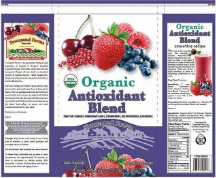The Costco-Townsend Farms Hepatitis A outbreak has sickened at least 97 people in the southwest United States and Hawaii. Hundreds of thousands of bags of the frozen berry and pomegranate mix have been recalled, and many people have had to get a vaccination to prevent acute Hepatitis after eating or handling the product. So what is Hepatitis A?
 There are seven types of Hepatitis, all identified by a letter. Hepatitis A is found in the feces of infected people. It is spread by eating or drinking food contaminated with the virus, by international travel and by close personal contact. Hepatitis B and C are found in blood and bodily fluids and aren’t transmitted by food or drink. You can be vaccinated against Hepatitis A and B; the CDC recommends that children should be vaccinated against Hepatitis A at one year, and infants, children, and teens ages 0-18 years should be vaccinated against Hepatitis B. There is no vaccine for Hepatitis C. Hepatitis A vaccinations protect for about 14-20 years in children and at least 25 years in adults.
There are seven types of Hepatitis, all identified by a letter. Hepatitis A is found in the feces of infected people. It is spread by eating or drinking food contaminated with the virus, by international travel and by close personal contact. Hepatitis B and C are found in blood and bodily fluids and aren’t transmitted by food or drink. You can be vaccinated against Hepatitis A and B; the CDC recommends that children should be vaccinated against Hepatitis A at one year, and infants, children, and teens ages 0-18 years should be vaccinated against Hepatitis B. There is no vaccine for Hepatitis C. Hepatitis A vaccinations protect for about 14-20 years in children and at least 25 years in adults.
Hepatitis D can only replicate in the presence of Hepatitis B virus; it is rare in developed countries. Hepatitis E is common in developing countries and is spread through fecal contamination; improving sanitation is an important measure of prevention. Hepatitis F and G, along with TT viruses are less common.
Hepatitis A incidence has declined precipitously in the United States since the vaccine was introduced in 1995. There were about 130,000 estimated cases in the U.S. that year. In 2010, the most recent year for which statistics are available, the estimated number of new infections was 17,000. The multiplier for infections is about 10, meaning that only 10% of cases are reported to public health officials.
You can be vaccinated after exposure to Hepatitis A within 14 days. The Hepatitis A vaccine is given to healthy people between 12 months of age and 40 years. Immune globulin is given to people aged 41 to 59 years, anyone over the age of 60, and persons under the age of 12 months. Anyone with chronic liver disease is given the immune globulin vaccination.
After 14 days, all you can do is monitor yourself for Hepatitis A symptoms, which include yellowing of the eyes and skin, dark urine, clay-colored stools, tiredness, and fever, nausea, and diarrhea. Some people lose their appetite and suffer abdominal cramping. The symptoms usually only last one to two weeks, but some people can be sick for six months. When the virus affects the liver, patients often require hospitalization. Treatment is usually supportive care; your body should clear the virus on its own unless you have underlying health issues.





My wife and I ingested the suspect berries, when we found out about the Hep-A contamination we were at about 12 days since we first ate them. We scrambled around trying to find the vaccine but none of the pharmacies in our area had it. Costco said they were not providing the shot and suggested we contact our healthcare provider, of course this was on a weekend and our concern was the 2 week period. We decided to go to our county health dept. Monday and not take any chances. My wife is 56 and I am 66 and they gave us the regular two stage vaccination instead of the immune globulin that the article says we should have had based on our age. I am wondering now if that is a problem we should be concerned about?